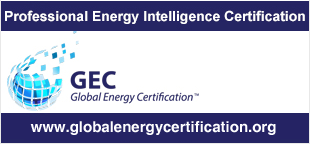NRG Expert offers the most comprehensive market research report on Energy Efficiency, looking at the global policies and incentives for energy efficiency. The report looks at how companies, governments and industries can become more efficient with their energy, particularly for power generation, the industrial sector, transportation and the residential or commercial sectors.
>> Download the Energy Efficiency Market Research Brochure
>> View the Energy Efficiency Market Research Table of Contents.
Key reasons to purchase this research
- To understand what Energy Efficiency means
- The barriers, products and government energy incentives for each country
- The financial implications
- The government energy policies and status
- To understand who has the highest energy consumption figures
- The global uptake and implementation of Energy Efficiency
- The projections for the future
What’s in this report?
This report contains data, statistics and analysis on energy efficiency. It looks at energy resources, energy policies, emissions and how to reduce energy consumption by becoming more efficient. It is a study of the government policies and incentives for energy efficiency for power generation, the industrial sector, transportation and the worldwide residential or commercial sectors. The report enables the reader to identify the major consumers of energy. They include in descending order: energy for power generation, the industrial sector, transportation and the residential or commercial sector. Therefore, efforts aimed at reducing energy consumption have focused heavily on these sectors, processes, products and so on with high energy consumption. Uptake of the implementation of some energy efficiency technology and devices has been rather slow. Significant barriers exist, such as high upfront costs etc. In many countries, the uptake of energy efficiency devices and technology is incentivised through government incentives and policies. For example, in Canada homeowners are offered grants for energy efficiency improvements under the ecoENERGY Retrofit scheme.
Background to this energy efficiency market research
Many companies are looking at ways they can become more efficient with their energy usage. This energy efficiency research was therefore commissioned to identify the most important energy policies, technologies, products and incentives. With electric generation capacity expected to be constrained in many countries, efforts have been focused on increasing electricity supply and reducing demand. One of the lowest hanging fruits in reducing electricity demand, i.e. the lowest cost, highest benefit, is energy efficiency. Often it is more cost effective to create energy efficient devices and technologies rather than to simply generate more electricity. The same principle applies to fuels for energy generation. Rising prices, especially for oil, make energy efficient cars with a low fuel consumption more attractive to consumers than conventional vehicles
Carbon Dioxide Emissions
Energy efficiency is also expected to be the main mechanism for reducing carbon dioxide emissions worldwide, especially emissions per capita. On a larger scale, energy efficiency policies will help countries achieve their emission reduction targets under agreements such as the Kyoto Protocol. Companies can also use energy efficiency to meet their targets under schemes such as the UK’s Carbon Reduction Commitment (CRC).
Definition for Energy Efficiency
Unfortunately, no one definitive definition for energy efficiency exists. A reduction in energy consumption by behavioural change is categorised as energy efficient by some and not by others. Although, energy efficiency experts refer to improving energy efficiency as the result of an action that ‘aims at reducing the amount of energy used for a given service e.g. lighting, heating, by the purchase of efficient equipment, retrofitting investment to reduce the energy consumption of existing buildings and facilities, or avoiding unnecessary energy consumption ’.
Waste heat recovery
One area that has attracted a lot of attention is the use of waste heat recovery in the power generation sector, and also the industrial sector. Energy efficiency companies involved in waste heat recovery have attracted significant investor capital. Other areas covered in this report include micro-hybrids in the transportation sector; and automated controls and energy efficient devices such as lighting in the residential and commercial sectors. Our report covers the following areas of energy efficiency and companies involved in these areas, along with other areas of energy efficiency relevant to the sectors: waste heat recovery, micro-hybrids, Automated Monitoring and Targeting (AM&T), boiler controls, Building Management Systems (BMS), Data Centres, Demand Response Management (Demand Manage-ment), Heating & Cooling, HVAC (Heating, Ventilation and Air Conditioning) Controls, Insulation, Lighting, Lighting Daylight Phasing Control & Occupancy Control, Variable Speed Devices (VSD), Voltage Power Optimisation and Windows & Glass.
The Players in the Global Market
The energy efficiency research considers the most important energy efficiency companies. Along with small start-ups, the energy efficiency sector is also covered by major players such as Siemens, Panasonic and Honeywell. Many of the big players develop energy efficiency technology in-house; others acquire the technology from start-up companies. Our report covers both key start-ups and key players in the sector.
Price: £950.00
Prod. Code: NRGEE1
Edition 1: 2012
>> Download the Energy Efficiency Market Research Brochure
>> View the Energy Efficiency Market Research Table of Contents.

















